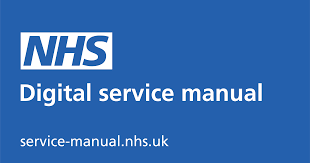Understanding Financial Independence (FI): A Path to Freedom
In recent years, the concept of Financial Independence (FI) has gained significant traction among individuals seeking more control over their lives and finances. But what exactly does it mean to achieve financial independence, and why is it becoming such a popular goal?
What is Financial Independence?
Financial independence refers to the state of having sufficient personal wealth to live without having to work actively for basic necessities. In simple terms, it’s about having enough income from investments, savings, or other sources to cover your living expenses without relying on a traditional job.
The Principles of Achieving FI
The journey towards financial independence involves several key principles:
- Savings Rate: One of the most critical factors in achieving FI is maintaining a high savings rate. This often involves living below one’s means and making conscious spending choices.
- Investing Wisely: Building a robust investment portfolio is essential. This typically includes stocks, bonds, real estate, or other assets that can generate passive income over time.
- Debt Management: Minimising and managing debt effectively ensures that more resources are available for saving and investing.
- Frugality: Adopting a frugal lifestyle helps accelerate the path to financial independence by reducing unnecessary expenses.
The Benefits of Financial Independence
Pursuing financial independence offers numerous benefits beyond just monetary freedom:
- Flexibility: With financial independence, individuals have the flexibility to choose how they spend their time—whether it’s pursuing hobbies, travelling, or starting new ventures.
- Security: Having a stable financial base provides security against unexpected life events such as job loss or medical emergencies.
- Lifestyle Design: FI allows people to design their ideal lifestyle without being constrained by financial limitations.
The Challenges Along the Way
The path to financial independence is not without its challenges. It requires discipline, patience, and often involves making sacrifices in the short term for long-term gain. Market fluctuations can also impact investment returns, requiring careful planning and risk management.
A Growing Movement
The FI movement has been bolstered by online communities and resources dedicated to sharing strategies and success stories. These communities provide support and motivation for those on similar journeys towards achieving their financial goals.
Conclusion
Pursuing financial independence is about more than just accumulating wealth; it’s about creating opportunities for personal growth and freedom. By understanding the principles of FI and staying committed to one’s goals, individuals can pave the way towards a more fulfilling life unburdened by financial constraints.
Eight Essential Tips for Effective Financial Management
- Ensure you have a clear understanding of your financial goals.
- Create and stick to a budget to manage your expenses effectively.
- Regularly review and track your spending to identify areas for improvement.
- Consider setting up automatic savings to build your savings gradually.
- Be cautious with credit cards and try to pay off the full balance each month.
- Explore different investment options to grow your wealth over time.
- Stay informed about financial news and developments that may impact your finances.
- Seek advice from a financial advisor if you need help with complex financial decisions.
Ensure you have a clear understanding of your financial goals.
To achieve financial independence, it is crucial to ensure you have a clear understanding of your financial goals. By defining what you aim to accomplish financially, whether it’s early retirement, starting a business, or simply achieving peace of mind, you can tailor your savings, investment strategies, and lifestyle choices accordingly. Having a well-defined set of goals provides direction and motivation on your journey towards financial independence, helping you make informed decisions that align with your long-term aspirations.
Create and stick to a budget to manage your expenses effectively.
Creating and adhering to a budget is a fundamental tip in achieving financial independence (FI). By establishing a clear budget that outlines your income and expenses, you gain better control over your financial situation and can make informed decisions about where your money goes. Sticking to a budget helps you track your spending, identify areas where you can cut costs, and prioritise saving and investing for the future. It is a crucial step towards managing your expenses effectively and working towards your goal of financial independence.
Regularly review and track your spending to identify areas for improvement.
Regularly reviewing and tracking your spending is a crucial step towards achieving financial independence. By closely monitoring where your money goes, you can identify patterns, pinpoint unnecessary expenses, and make informed decisions about where to cut back or reallocate funds. This practice not only helps you stay on track with your savings goals but also empowers you to make positive changes that can accelerate your journey towards financial freedom.
Consider setting up automatic savings to build your savings gradually.
Consider setting up automatic savings to build your savings gradually. By automating your savings process, you can ensure a consistent contribution towards your financial goals without the need for constant manual intervention. This approach not only helps in cultivating a disciplined saving habit but also allows your money to grow steadily over time, bringing you closer to achieving financial independence.
Be cautious with credit cards and try to pay off the full balance each month.
When striving for financial independence, it is crucial to exercise caution with credit cards. To stay on track towards FI, it is advisable to aim to pay off the full balance each month. By avoiding carrying over balances and accumulating high-interest debt, individuals can maintain control over their finances and work towards building a solid foundation for their future financial goals.
Explore different investment options to grow your wealth over time.
Exploring a variety of investment options is a crucial tip for achieving financial independence. By diversifying your investment portfolio with assets such as stocks, bonds, real estate, and mutual funds, you can maximise your potential for growth and mitigate risks. Each investment avenue offers unique opportunities and returns, allowing you to build wealth steadily over time. Understanding the market dynamics and seeking professional advice can help you make informed decisions that align with your financial goals, ultimately propelling you closer to the path of financial independence.
Stay informed about financial news and developments that may impact your finances.
Staying informed about financial news and developments that may impact your finances is a crucial tip for those on the path to achieving Financial Independence (FI). By keeping abreast of market trends, economic indicators, and relevant policy changes, individuals can make informed decisions about their investments, savings strategies, and overall financial planning. Being proactive in monitoring financial news allows for timely adjustments to one’s financial approach, helping to navigate potential risks and seize opportunities for growth. In the journey towards FI, knowledge truly is power, and staying informed is key to building a solid foundation for long-term financial success.
Seek advice from a financial advisor if you need help with complex financial decisions.
Seeking advice from a financial advisor can be invaluable when navigating complex financial decisions. A professional advisor can provide expert guidance tailored to your specific circumstances, helping you make informed choices that align with your long-term financial goals. Whether it’s retirement planning, investment strategies, or estate planning, consulting with a financial advisor can offer clarity and peace of mind in managing your finances effectively.



